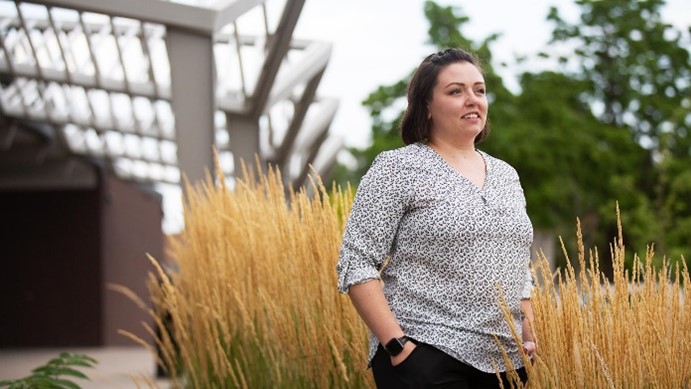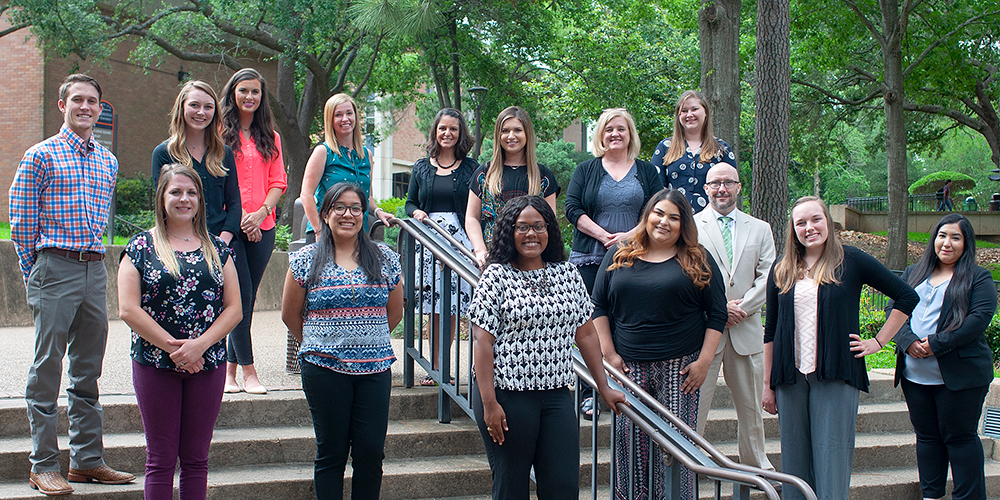Teacher Education
AASCU supports our members as they prepare the teachers who prepare our students for success in college.
Our members train the P-12 teachers who equip future generations to succeed in college and careers. These vital educators face complex challenges, including school budget cuts, teacher shortages, low teaching salaries, and political pressure. AASCU members diligently work to develop teacher preparation programs that respond to these constraints as a core function of their mission to support an educated and engaged student body, community, and region.
Expand student success efforts by promoting effective teacher education.
AASCU supports member institutions in their efforts to offer high quality teacher education programs by working with partner organizations on a variety of policy-related issues, recognizing exemplary teacher education programs, and serving as a valuable resource for administrators and faculty members.
Strengthen teacher preparation.
Presidents and chancellors of AASCU institutions can advance teacher education programs at the national level by serving on the Committee on Teacher Education.
Get involved.Showcase your teacher education program.
The Christa McAuliffe Excellence in Teacher Education Award honors exemplary teacher education programs at AASCU institutions.
Submit to the Christa McAuliffe Award.Get recommendations for improvement.
Drawing on a survey of AASCU presidents, provosts and education deans, the 2016 Teacher Education Task Force report identifies areas of focus for improving teacher education.
Read the report.Our members develop highly qualified teachers all students depend on to set them up for college success.
51%
of undergraduate students from underrepresented groups, including those who go on to become teachers, are educated by AASCU institutions.
65%
of public, four-year bachelor’s degrees in education are awarded by AASCU institutions each year.
51.4 million
students will enroll in public schools by 2026.
Join the AASCU Committee on Teacher Education.
The Committee on Teacher Education advises AASCU on programs, projects, and federal and state public policy initiatives needed to improve teacher education, and the committee advises member presidents on ways to strengthen campus programs and enhance their credibility with policymakers and the public.
Apply to the Christa McAuliffe Excellence in Teacher Education Award.
The Christa McAuliffe Excellence in Teacher Education Award recognizes programs that have done an exemplary job of using evidence of their graduates’ impact on P-12 learning outcomes to inform improvements to their pre-service preparation and professional development programs.
Celebrate the achievements of these Christa McAuliffe winners.
Read the Task Force on Teacher Education report.
AASCU’s 2016 Task Force on Teacher Education assessed the state of teacher education at member institutions, identified pockets of innovation and success in the field, and highlighted the vital role of presidents and provosts in strengthening and supporting the effectiveness of their programs for an increasingly diverse P-12 student body.
The report, Preparing Teachers in Today’s Challenging Context: Key Issues, Policy Directions, and Implications for Leaders of AASCU Universities, identified the following recommendations for institutions and public policy priorities for teacher education:
- Help educator preparation programs bolster clinical experiences for teacher candidates.
- Ensure teacher preparation programs have strong relationships with P-12 partners.
- Step up strategic recruitment into teacher preparation programs.
- Build stronger articulation agreements with community colleges.
- Help develop strategies to professionalize teacher education.
Federal Policies Regarding Teacher Preparation
- Strengthen and fund high-quality clinical experiences and require their inclusion in all traditional teacher preparation programs and federally funded alternative programs.
- Secure dedicated funding streams to support continuous improvement of university-based teacher preparation programs.
- Ensure that any federally funded grant program supporting reform in teacher preparation programs requires a meaningful and sustained partnership with a high-need P-12 school district and a strong emphasis on clinical practice.
- Support efforts to better align Title II of the Higher Education Act and Title II of the Elementary and Secondary Education Act to strengthen the recruitment, preservice preparation, induction and mentoring, and in-service professional development of P-12 teachers and school leaders.
- Secure appropriations to assist states in meeting the updated teacher quality requirements set forth under the reauthorized Elementary and Secondary Education Act.
- Oppose federal efforts that infringe on academic judgment or state authority in the design and regulation of teacher preparation programs.
Accountability of Teacher Preparation Programs
- Provide federal funds for research and evaluation of teacher preparation programs—including efforts to improve state P-20 data systems—such as through the linkage of teachers with student outcomes in order to inform and improve program performance, productivity and impact on student learning. Ensure that preparation programs have access to the data by which they are being evaluated.
Teacher Recruitment and Retention Strategies
- Provide federal funds to increase the number of educators from underrepresented and nontraditional teaching populations through various incentive structures, including centers of excellence based at institutions of higher education.
- Support service-payback models to recruit students who agree to teach in targeted school districts, especially schools that are difficult to staff or where salaries are not competitive with surrounding districts. While not without flaws, the TEACH Grant program is one such model.
- Support loan forgiveness for teachers who work in high-need schools or teach in high-need subject areas.
State Policies Regarding Teacher Education
- Build strong, meaningful partnerships between state and local education agencies and institutions of higher education to support teacher education; standards, curricula, and assessment alignment; and accountability.
- Develop appropriate licensure standards on the basis of valid, reliable and objective data, and align assessment of teacher preparation programs with those standards.
- Require all teacher candidates to complete and pass a performance assessment to demonstrate their readiness to effectively lead a classroom.
- Evaluate all teacher preparation providers using the same standards.
Latest News and Resources
Upcoming and Recent Events
Explore other ways AASCU is expanding student success.
Our collaborative programs and initiatives support institutions as they drive social and economic mobility for their diverse students and communities.
American Democracy Project
Join nearly 300 institutions committed to developing civically engaged students.
Learn more.Global Initiatives
We facilitate partnerships that expand our members’ capacity to connect students and faculty to their local and global communities.
Learn more.Leadership Development
Our leadership development programs integrate equity and student success
throughout, rallying the talents and generosity of experienced AASCU members.

